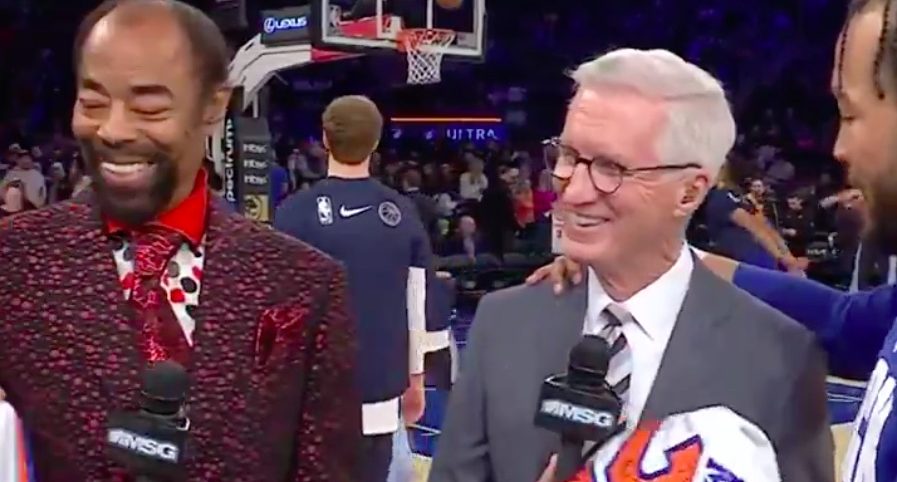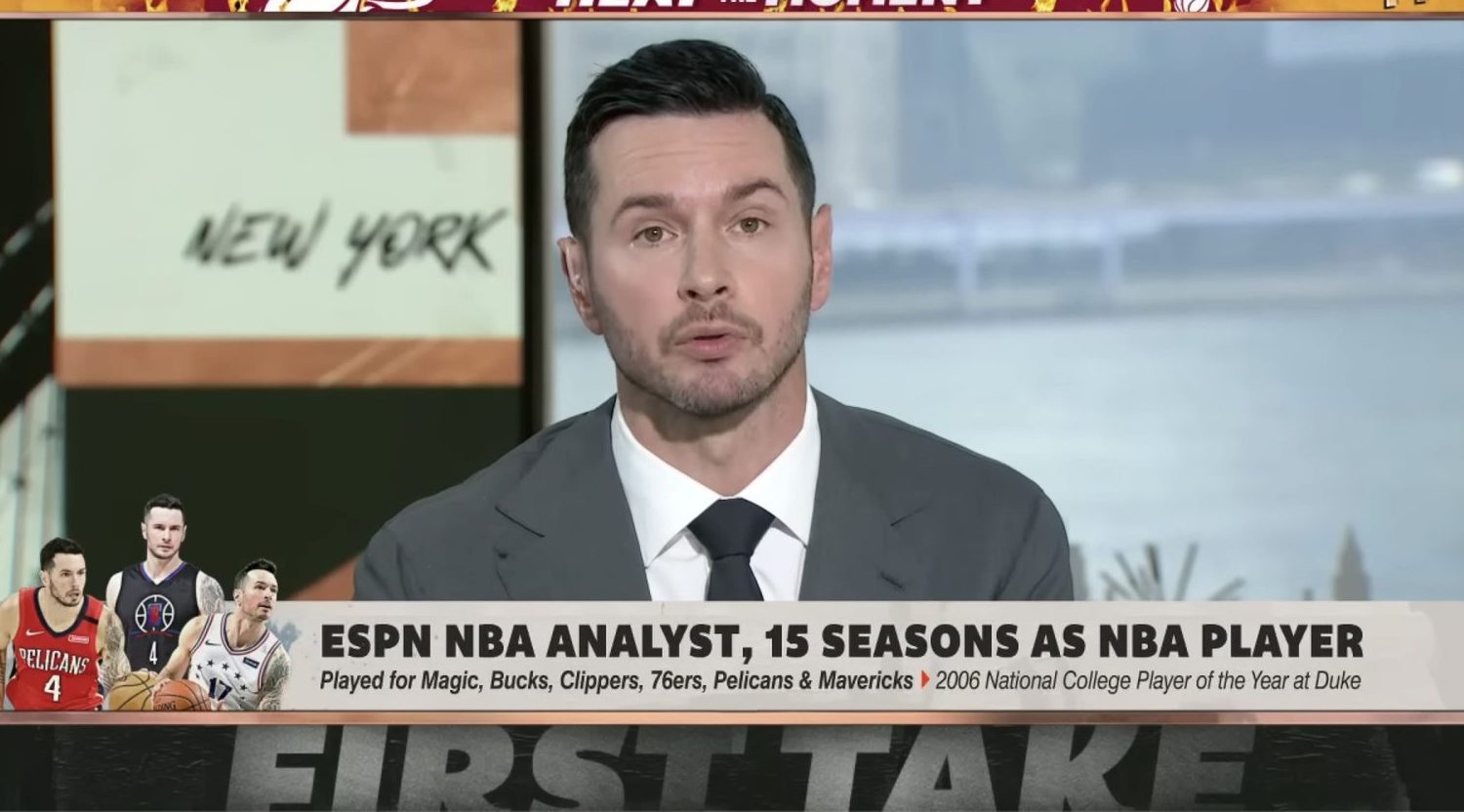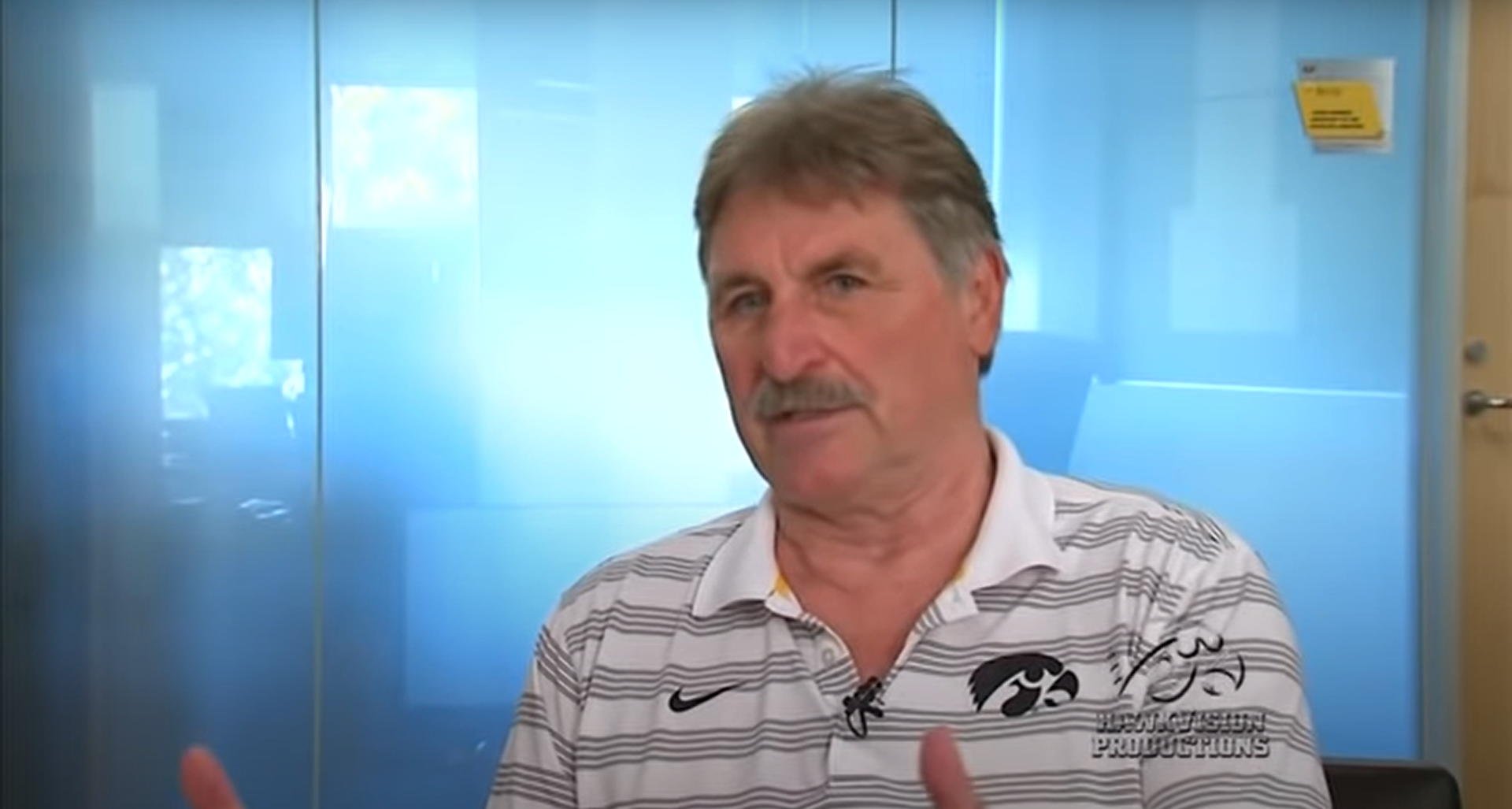In recent years, ESPN has ended its relationship with talent across the board. Audiences have watched as big names like Bill Simmons, Skip Bayless, and Colin Cowherd were replaced by others moving up the food chain. It’s not just the talent featured in ad campaigns that’s in a state of flux, however.
Color commentators and sideline reporters are often the unsung heroes (or much sung-of villains) of game broadcasts and the chance to get one’s foot in the door with The Worldwide Leader can be a stepping stone to a long and lucrative broadcasting career. But how does one get that opportunity to become the next Kirk Herbstreit, Brian Griese, or Jesse Palmer?
Just like those guys, being a football player from a major program certainly helps (Sorry, sports broadcasting majors).
Mike Wake at AL.com recently looked into the process by which ESPN figures out who will join its stable of college football analysts each year, focusing on former Auburn center and current SEC Network sideline reporter Cole Cubelic and former LSU defensive tackle and current SEC Network analyst Anthony “Booger” McFarland.
As ESPN Senior Coordinating Producer Lee Fitting puts it, ESPN recruits its young analysts much in the same way college football programs do. They look around. They do their homework. They watch the tape.
“We’re always keeping our eyes on players that are either not going to play in the NFL out of college or are going to retire from the NFL that we think may be a good fit on TV. And then the other half of the time we’re getting guys that we may have never thought of, that come to us and we audition them and we say, ‘Oh my gosh, this person’s going to be great.’ So it’s a 50/50 split.”
As Wake explains, ESPN usually auditions “three to six” new potential CFB analysts every year. That number is largely dependent on current talent whose contracts expire or who are not renewed. As for what they look for in those auditions, “It goes beyond just knowing the players on the field and statistics.”
Name value matters, as you might have expected. There’s a reason most ESPN analysts were either famous from their playing days or played for major college programs. They see that as including a certain credibility and familiarity with fan bases. Consciously or subconsciously, viewers will assume an SEC player has a better football knowledge than a guy who played FCS. Maybe that’s unfair but with ESPN it’s all about how the optics look.
Perhaps no one personifies this more than Jordan Rodgers, a former SEC quarterback who is the brother of Aaron Rodgers and a former suitor on The Bachelor. He was bred to be a college football analyst for the ESPN family.
Name recognition only gets you so far. You still have to simulate actual game commentary. Some color commentator tryouts will last one quarter while others have to announce an entire game. According to Fitting, ESPN might give them training on voice projection, posture, and even wardrobe. But they’re ideally looking for the analysts that don’t need a lot of training at all.
“The best (analysts) don’t need the training. The best ones are natural and you can sort of sense that prior to hiring them or soon after hiring them. think they can turn into robotic figures, if you will, with too much training. I like just giving them more and more reps and telling them to be as natural as possible with little tweaks along the way.”
As you’ve probably noticed, quarterbacks make for the most likely choice of analyst. Not only do they usually check the right boxes when it comes to popularity and built-in appeal but they often come in with very good sensibilities about the game at-large. That doesn’t mean other positions aren’t represented as well, as Cubelic, McFarland, and SEC Network Saturdays analyst Matt Stinchcomb prove.







